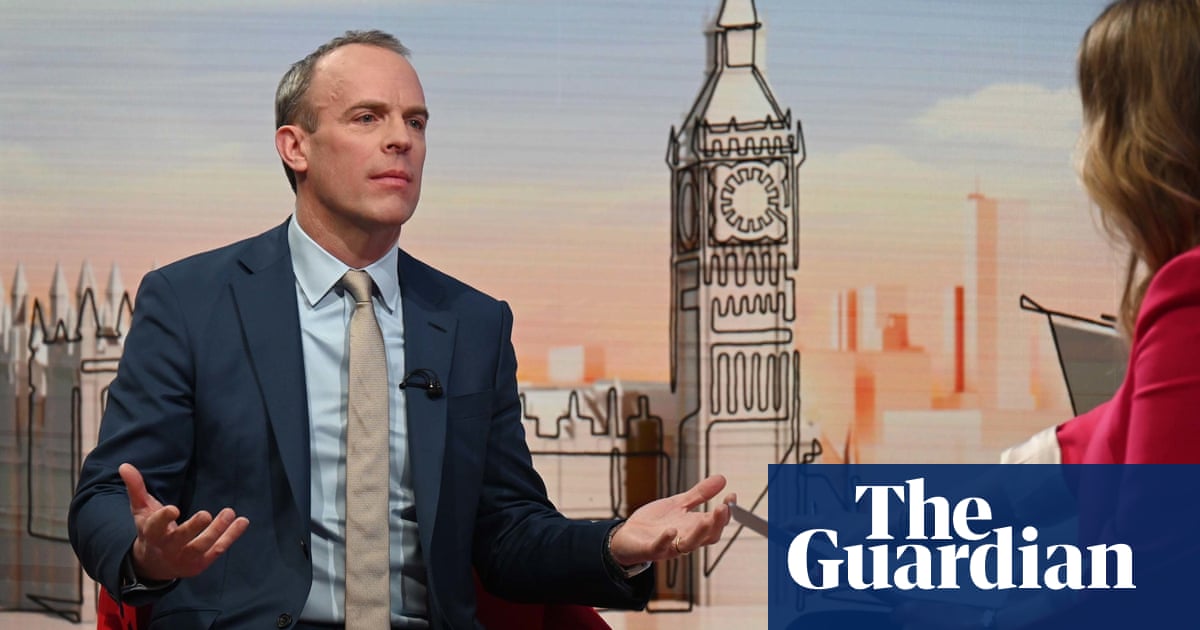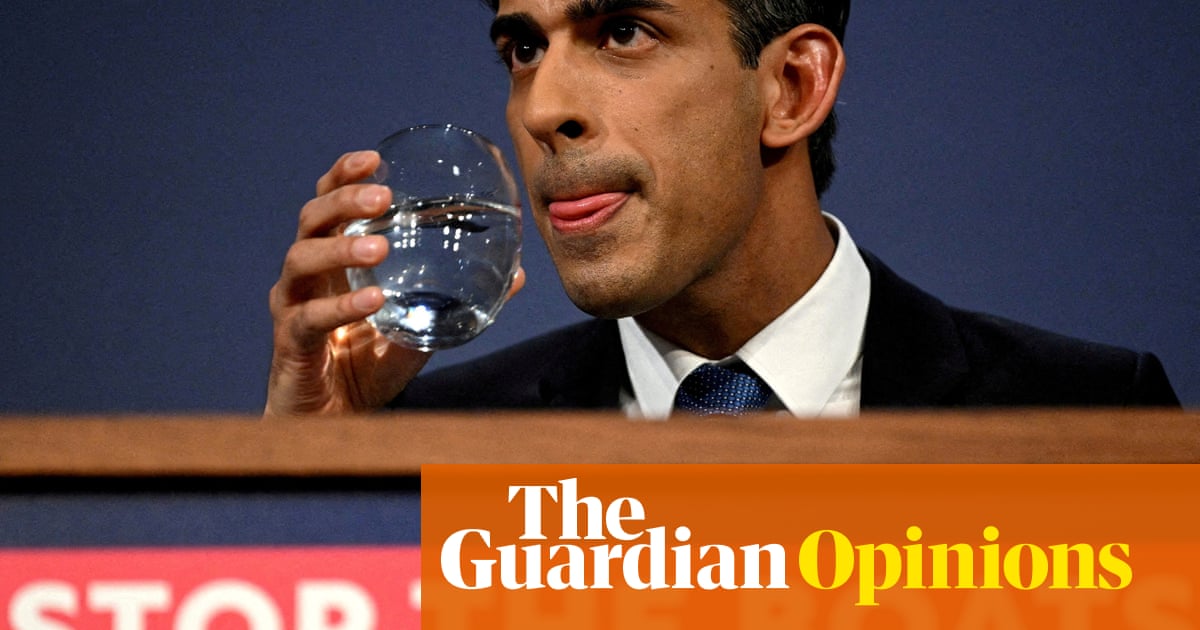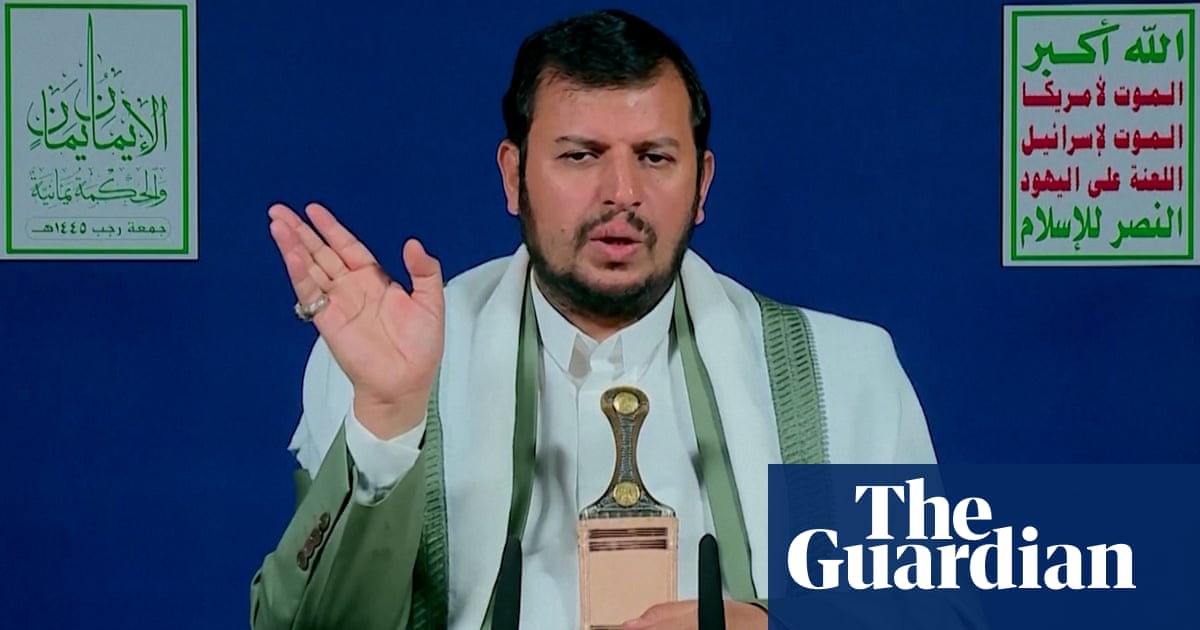
Dominic Raab has said the government has no plans to publish the list of participants in the Sage committee of scientific experts, after the Guardian revealed that key meetings have been attended by Dominic Cummings.
“We don’t release as a matter of practice the names of all the members of Sage because the risk of them being subject to pressure, undue influence,” the first minister and foreign secretary said on Sunday.
He rejected the idea there had been a “lack of transparency” from the government over the group’s work.
“We’ve had the chief scientific adviser, Sir Patrick Vallance, the chief medical officer, Prof Chris Whitty, along with politicians like me standing up on a daily basis answering the questions, setting out their advice and making sure that we communicate as clearly as possible to the public what that advice is,” he said.
Some senior Conservatives, including the former cabinet minister David Davis, have joined calls for more information to be published about the committee’s deliberations.
Ministers have repeatedly insisted throughout the crisis that they have “followed the science” – so the presence of Cummings and another political adviser, Ben Warner, at some committee meetings has raised questions about its independence.
Davis said: “We should publish the membership of Sage, remove any non-scientist members, publish their advice in full, and publish dissenting opinions with the advice.”
Speaking to Sophy Ridge on Sky News, Raab underlined the risks of a “second spike” in the coronavirus outbreak, and declined to set out details of when and how the lockdown could be lifted across the UK.
The foreign secretary said ministers were beginning to examine what should happen in what he repeatedly called the “second phase” of the lockdown: but he also stressed the importance of avoiding a resurgence in infections by lifting restrictions too soon.
“There are certain things that if we jumped the gun, they would be irresponsible and precarious,” Raab said. “The delicate stage we’re at, is if we ease up too soon, we risk a second spike of the virus,” he said, speaking to Sophy Ridge on Sky News.
He confirmed Boris Johnson would be back at work on Monday, three weeks after being taken into intensive care with Covid-19.
He said the prime minister would be “back at work full-time, properly, at the helm” – and “as you can imagine with the prime minister, he’s raring to go”.
Johnson will have to confront the challenge of deciding when, and how, to unravel the stringent lockdown measures imposed on 23 March, amid conflicting pressures. They are due to be reviewed by 7 May.
Johnson held a three-hour meeting at his country retreat of Chequers on Friday with Raab, the chancellor, Rishi Sunak, and key aides including Dominic Cummings.
Sunak is concerned about the devastating impact of the crisis on the economy, with the independent office for budget responsibility suggesting a three-month shutdown could lead to a 35% collapse in GDP and an increase of more than 2 million in unemployment.
At the meeting, Johnson reportedly quoted, in Latin, the Roman statesman Cicero, saying, “the health of the people should be the supreme law”.
Raab confirmed that travellers entering the UK could face further restrictions – including potentially health checks on entry – during the next phase of managing the crisis.
“That is something we will be looking at, and it could include the testing for people coming in; it could include social distancing measures,” he said.
He rejected the idea that ministers should have imposed such measures earlier.
Arrivals into Britain from the worst-affected countries were quarantined or urged to self-isolate during the early stages of the outbreak: but the measures were then lifted once it was clear the virus was spreading within the UK.
At the time, Raab said, ministers were advised that travel restrictions or quarantine measures would “make almost no impact on the spread of the virus because of the decrease in the number of people travelling, and the fact that the infection rate within the UK is high”.
The Scottish first minister, Nicola Sturgeon, echoed Raab’s caution about relaxing the rules, telling the BBC: “It’s too early right now to have any confidence that we could see the virus potentially run out of control again.”
She added that when measures could be lifted, “it’s not a flick of the switch moment: there will be a real need for care and caution and a slow and gradual process”.
She said social distancing would have to be in place for “quite some way to come,” and the public would have to contemplate “different ways of operating”.
Whitehall officials have been examining what kinds of businesses should potentially open first, based on which could safely impose physical distancing – and which are most critical for the economy and society.
• Coronavirus and volunteering: how can I help in the UK?












